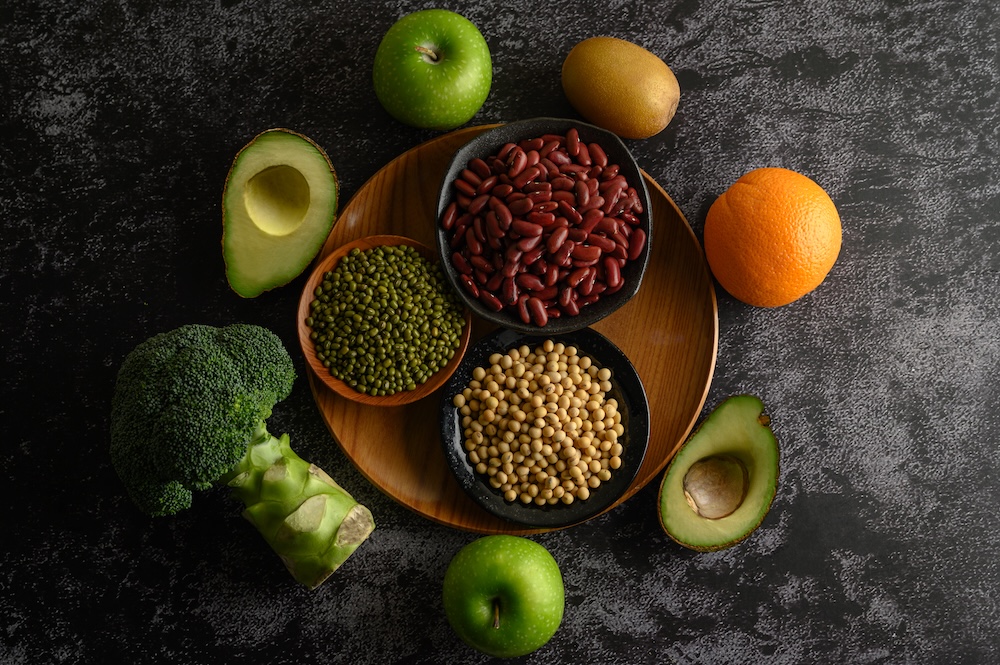When it comes to dieting, navigating the endless options can feel overwhelming. From fad cleanses to evidence-based nutrition plans, not all diets are created equal — and some can even do more harm than good. While safe and balanced diets can improve overall health and reduce the risk of chronic disease, harmful diets may restrict essential nutrients, slow metabolism, or put unnecessary stress on the body.
This guide breaks down harmful versus safe diets, highlights their potential risks, and explains how to create a balanced, sustainable way of eating that supports both your health and your lifestyle.
Harmful Diets
Fad Diets
Fad diets often promise quick results but rely on extreme restriction, cutting out entire food groups or drastically lowering calories. Examples include the cabbage soup diet, the grapefruit diet, and the lemonade diet. While they may result in short-term weight loss, they often lack balance and long-term sustainability. Nutrient deficiencies and yo-yo dieting are common outcomes.
Juice Cleanses
Juice cleanses rely exclusively on fruit and vegetable juices for days or weeks at a time. While this approach may offer a temporary reduction in calories, it poses significant risks: lack of protein, muscle loss, and blood sugar spikes from concentrated natural sugars. For people with insulin resistance or diabetes, juice cleanses can be particularly dangerous.
Low-Carb, High-Fat Diets
Popularized by ketogenic-style eating, low-carb, high-fat diets can lead to short-term weight loss but raise concerns in the long run. High saturated fat intake increases the risk of cardiovascular disease, while nutrient deficiencies may occur from avoiding fiber-rich fruits, vegetables, and grains. Prolonged adherence has also been linked to kidney strain and liver stress.
Detox Diets
Detox diets market themselves as a way to “flush toxins” from the body, but scientific evidence supporting this is minimal. These diets often severely restrict calories and lack essential nutrients like protein, fiber, and healthy fats. Over time, detox dieting can slow metabolism and cause nutrient imbalances.
Very-Low-Calorie Diets (VLCDs)
Diets under 800 calories a day may lead to dramatic weight loss, but at a high cost. Risks include gallstones, electrolyte imbalances, slowed metabolism, and heart complications. VLCDs are rarely sustainable, and the rapid weight loss often rebounds once normal eating resumes.
Safe Diets
Mediterranean Diet
The Mediterranean diet is one of the most studied and recommended approaches to long-term health. Based on whole foods like vegetables, fruits, legumes, fish, nuts, and olive oil, it reduces the risk of heart disease, improves cognitive function, and supports longevity.
DASH Diet
The DASH (Dietary Approaches to Stop Hypertension) diet focuses on lowering blood pressure with whole grains, lean proteins, vegetables, fruits, and low-fat dairy. It’s clinically proven to reduce the risk of cardiovascular disease while maintaining flexibility and balance.
Plant-Based Diet
Plant-based eating emphasizes fruits, vegetables, legumes, whole grains, nuts, and seeds while limiting or eliminating animal products. Studies link it to reduced risks of diabetes, heart disease, and certain cancers. When carefully balanced, plant-based diets are both safe and environmentally sustainable.
Flexitarian Diet
The flexitarian diet blends the benefits of plant-based eating with occasional meat consumption. It’s approachable, nutrient-rich, and sustainable while offering flexibility for people who struggle to get enough protein solely from plants.
Weight Watchers (WW)
Rather than restricting food groups, Weight Watchers (WW) encourages moderation and long-term habit changes through a flexible points-based system. It prioritizes whole foods, balance, and support, making it one of the safer commercial diet programs.
Nutritional Needs and Risks
There’s no one-size-fits-all diet. Individual needs vary depending on health conditions, activity levels, and personal goals. Diets that eliminate entire food groups or over-restrict calories can create imbalances that affect both short- and long-term health.
Before starting a new diet, it’s always best to consult with a healthcare professional or registered dietitian. They can help identify potential risks, ensure proper nutrient intake, and personalize your plan.
Creating a Balanced and Sustainable Diet
The key to a healthy diet is balance, variety, and sustainability. A good approach should include:
- Whole fruits and vegetables for fiber and micronutrients
- Lean proteins from plants, fish, or poultry
- Healthy fats like olive oil, nuts, and seeds
- Whole grains for energy and digestive health
- Minimal processed foods and added sugars
- Adequate hydration
Focusing on these pillars makes dieting less about restriction and more about building a lifestyle that supports health for the long term.
Final Thoughts
Harmful diets often sacrifice nutrition for quick results, leaving people at risk of deficiencies and long-term health problems. Safe diets — like the Mediterranean, DASH, or plant-based approaches — emphasize balance, variety, and whole foods, offering benefits for both health and longevity.
By moving away from unsustainable trends and embracing a balanced, flexible approach, anyone can create a healthy diet that nourishes the body while being realistic for daily life.








